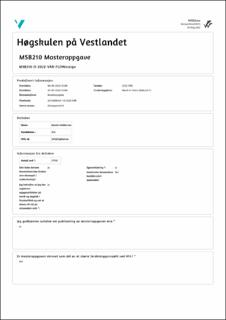| dc.description.abstract | It has become ever more prevalent for companies to engage in brand activism. Whether it’s fighting against racial injustice, protecting the environment, or standing up for freedom of speech – the corporate world is increasingly expected to speak out, or face the music if they do not. However, as taking a stance on divisive political issues necessitates taking a stance against those on the other side of the issue, this too does not come without risks of its own. To better understand brand activism’s impact on consumers, we have stated the following research problem within a Norwegian context: “How do consumers respond to brands engaging in brand activism?”
This research proposes a set of hypotheses related to the suggested connections between the constructs brand activism (BA), self-brand connection (SBC), purchase intention (PI) and political reference group (PRG). All constructs are abstracted from literature review. We have conducted a quantitative study and received responses from 326 respondents – all of whom live in Norway. We tested our research models across four separate expressions of BA – two statements affiliated with the political right and two statements affiliated with the political left. Our findings suggest that a consumer’s SBC – in response to a given political sentiment associated with a brand (BA) – is dependent on the consumer’s PRG. Rightist BA positively influences SBC if the consumer identifies with the right, and negatively influences SBC if the consumer identifies as with the left. Leftist BA positively influences SBC if the consumer identifies with the left, and negatively influences SBC if the consumer identifies with the right. Lastly, we found that SBC positively influences PI in all four model analyses. | en_US |

